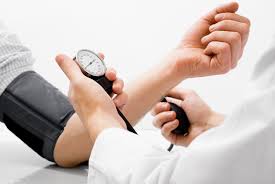Buying life insurance with pre‑existing conditions can be relatively easy or more involved, depending on your situation.
Many common health issues are simple to insure with the right carrier, while more serious concerns may require a bit more legwork on our part.
Our goal is to leverage proven strategies and strong carrier relationships to help you secure affordable, reliable coverage for your family.
quick navigation links
 Life Insurance with Medical Conditions
Life Insurance with Medical Conditions
Most people realize that a pre‑existing condition is any health issue you have before applying for life insurance.
If you’re applying for coverage with health issues, expect a slightly longer process as insurers review your history and how well your condition is managed.
Underwriters often request an attending physician statement (APS) to clarify how well your condition is managed, whether you follow treatment recommendations, and whether there are any complications.
Before applying, gather your doctor’s contact information, ensure your medical records are up to date, and keep a current list of medications and dosages. This helps underwriters assess your application accurately and prevents delays.
To get the best pricing, always share your full medical history with us. As independent agents, we can match your condition with the companies most likely to offer competitive rates.
We look for carriers that evaluate your overall medical profile—lifestyle habits, family history, treatment adherence, and stability.
Our holistic strategy has been proven to deliver better pricing for our clients with both common and more complex health issues.
 What Counts as a Pre‑Existing Condition?
What Counts as a Pre‑Existing Condition?
We specialize in assisting those with well-managed medical conditions secure affordable life insurance rates.
One of the first steps in our process is to guide our clients through the intricacies of how their premiums are calculated after the underwriting phase is complete.
During the underwriting phase, insurers examine your medical history to determine the appropriate rate class for you.
Most insurers use well-defined categories for healthy applicants, typically including Preferred Plus, Preferred, Select, and Standard. Each of these categories reflects varying levels of risk, with a notable price variance of 10–25% between them.
For individuals facing health challenges, life insurance companies may offer more expensive table-rated classes that accommodate those with pre-existing conditions, allowing them to secure coverage despite their health concerns.
Our mission is to help healthy clients with well‑managed conditions secure the best pricing available—often the preferred or even preferred plus rate class.
For clients with more complex medical histories, we focus on securing approval and aiming for the most favorable outcome, typically the Standard rate class.
If you’re thinking about applying for coverage, simple lifestyle changes can make a meaningful difference in your rates. Losing a few pounds or improving your blood pressure may be enough to qualify for a better rate class.
What underwriters care about most is stability—consistent improvement and clear evidence that you’re following your doctor’s recommendations.

Life Insurance for High Blood Pressure
High blood pressure is one of the most common conditions, and most applicants can still qualify for coverage if their readings are well‑controlled.
Underwriters look closely at your average blood pressure, medication history, and whether you follow up regularly with your doctor.
If you have high blood pressure and take medication, most life insurance companies will classify you as preferred.
For the best rates, we look for providers that list treated hypertension as eligible for the preferred plus category, which costs less.

Life Insurance for High Cholesterol
Insurers evaluate cholesterol by looking at your total cholesterol, HDL (“good” cholesterol), LDL (“bad” cholesterol), and your cholesterol ratio.
Well‑managed cholesterol—especially with a strong HDL level—can still qualify for competitive preferred plus rates.
Since cholesterol levels can differ among insurance providers, it’s important to work with our agents who understand how your levels align with their guidelines.

Life Insurance for Diabetics
People seeking life insurance with diabetes can usually find affordable rates, especially healthy diabetics who control their blood sugar levels well with diet or oral medications.
Underwriters look at A1C levels, medication use, age at diagnosis, and any complications. Consistent management is the key to securing the best possible rates.
If you have been recently diagnosed with diabetes, we suggest waiting at least six months before applying to establish a track record of control.
Applicants with a long-term history of diabetes should ensure their A1C is under eight before applying for coverage.
Although applicants taking oral medication for Type 2 diabetes are usually not eligible for preferred rates, many can still be insurable at standard rates.

Life Insurance for Overweight People
Weight is one of the simplest factors that insurers evaluate, and most companies use height‑and‑weight charts to determine rate classes.
We know which insurers offer the most flexible build and BMI guidelines, so we can quickly determine how your numbers fit within each carrier’s standards.
Being overweight doesn’t automatically mean higher premiums—many companies still offer preferred pricing to applicants who fall slightly outside the “ideal” range.
People in otherwise good health with moderate weight issues often qualify for standard rates, while those in the obese range may see higher premiums.

Family History of Cancer or Heart Disease
Insurers may consider your family history of early heart disease or cancer, even when your own health is well‑managed.
When applying, please share this information with us so we can match you with companies that take a more flexible approach.
Most underwriters look at whether a parent or sibling was diagnosed with or passed away from heart disease or cancer before age 60, and some also consider how many relatives were affected.
Applicants with a difficult family history generally qualify for rates ranging from preferred plus to standard plus, depending on the insurance carrier.

Life Insurance for Anxiety and Depression
People seeking coverage with a few common forms of mild depression, such as situational depression or seasonal affective disorder, can normally get preferred plus rates.
Those with moderate depression or anxiety may qualify for the more expensive standard rate class if they have no suicidal thoughts, prior hospitalizations, and are on only a few medications.
Unfortunately, you can also be denied for life insurance coverage if your condition is classified as severe depression.

Life Insurance for Sleep Apnea
Sleep apnea is a common health condition, and we consistently see insurers approve applicants who use a CPAP machine.
Underwriters just want to see compliance, a recent sleep study, and no major complications, such as untreated hypertension.
Controlled sleep apnea often qualifies for standard or even Preferred rates. While untreated or severe cases may lead to higher premiums, coverage is still widely available.
Comparison Table: Underwriting Outcomes by Condition
| Condition | Preferred | Standard |
| High Blood Pressure | Yes | Yes |
| High Cholesterol | Yes | Yes |
| Mild Anxiety/Depression | Yes | Yes |
| Sleep Apnea | Sometimes | Yes |
| Type 2 Diabetes | No | Yes |
| Overweight | Sometimes | Yes |
| Heart Disease | No | Sometimes |
| Cancer History | No | Sometimes |
Buying Life Insurance with Medical Conditions
Our goal is to help you get the best life insurance rates by matching your unique medical history with the right carriers.
Most people do not realize that insurers evaluate risk differently, and some are far more flexible with chronic conditions than others.
To illustrate how underwriting varies, Banner Life is a strong option for depression, Prudential is often best for tobacco users, and Pacific Life is our top choice for applicants who are overweight.
To take advantage of each company’s underwriting strengths, completing a quick medical exam often leads to better pricing because it gives underwriters a clearer picture of your health.
Our agents use a single exam across multiple carriers, enabling us to present your medical profile efficiently and find the most competitive rate.
Once you are approved, our next step is to help you find the most appropriate option between term, universal, and whole life insurance coverage.
For high‑risk applicants, we generally recommend choosing the longest coverage period possible so your policy stays in place even if your health changes later.
⊕
Term Life Insurance
For many of our clients, term life insurance is the most suitable option because it delivers the highest coverage at the lowest cost.
A term life insurance policy offers fixed death benefits and premiums, typically ranging from 10 to 40 years.
The most affordable option is a 10‑year term, which works well for short‑term needs and provides temporary coverage while your health improves.
Longer terms—up to 40 years—cost more but are better suited for long‑term protection and can be invaluable if your health declines later.
Most term insurance buyers should be happy to know that if you have a well‑managed health issue, you can still qualify for excellent rates.
If you have more severe health issues and don’t qualify for a traditional term insurance plan, you may want to consider an accidental death benefit policy.
ADB policies pay a claim only in the event of an accident, but can still provide affordable protection when medical underwriting is challenging.
⊕
Universal Life Insurance
Guaranteed Universal Life (GUL) is typically a strong fit for clients who want lifetime protection and don’t want to worry about re‑qualifying if their health declines later.
We like GUL because it focuses on guaranteeing the premium and death benefit rather than emphasizing cash value growth, at a lower cost than other permanent options.
Some insurers are also more lenient in underwriting GUL policies, making it the best coverage option for people with medical histories who want lifelong coverage at a reasonable price.
⊕
Whole Life Insurance
Whole life insurance offers permanent coverage with fixed premiums and a death benefit that lasts for life. It also accumulates cash value and dividends over time.
However, traditional whole life insurance is rarely the most affordable option for clients with pre-existing conditions.
Because it requires full underwriting and comes with higher premiums, most people use whole life only for smaller policies or specific long‑term planning needs.
⊕
Guaranteed-Issue Life Insurance
Guaranteed‑issue and simplified‑issue whole life policies don’t require full underwriting, making them a good option for clients with more serious or uninsurable conditions.
They cost more, but they provide guaranteed approval and permanent coverage when traditional term insurance isn’t available.
These expensive whole-life policies only offer death benefits up to $25,000 and are ideally suited for people with health problems looking to cover their final expenses.
However, it’s important to note that some policies have a 2-year waiting period before the full death benefit is paid. AIG and Gerber Life typically offer the best rates on guaranteed issue coverage.
We can guide you in selecting the right policy and help you understand its terms and conditions, including any exclusions or limitations.
Affordable Life USA simplifies your search by allowing you to quickly compare coverage options with our life insurance calculator.

Do You Need Life Insurance Quotes?
- Select Duration
- Select Amount
- Press Get Quote
 Replacing Coverage with a Medical Condition
Replacing Coverage with a Medical Condition
If you have a medical condition and are considering switching life insurance policies, there are a few important factors to understand before making a move.
Any new policy will restart the standard two‑year contestability period, which allows the insurer to review your application and investigate a claim if you pass away during that time.
When you apply for new coverage, you’ll need to disclose your medical history and complete a medical exam. This can make switching more challenging for those with serious health issues such as heart disease or cancer.
However, if you already have a term policy, you may be able to convert it to permanent coverage with no medical underwriting at all.
However, replacing coverage may be beneficial if you have only minor health issues, such as high cholesterol or high blood pressure, and you’re currently with an expensive insurance provider.
Another situation that can lead to much better pricing is when your health has improved—whether you’ve lost weight, quit smoking, or gained better control of a condition.
Our agents specialize in life insurance and can use their vast experience to guide you toward the most favorable options for your health profile.
 FAQ: Life Insurance with Pre-existing Conditions
FAQ: Life Insurance with Pre-existing Conditions
How do insurers know if you have a pre-existing condition? Insurance companies determine if you have a pre-existing condition by asking about your health on the application, accessing your medical records, and requiring you to do a medical examination.
How far back in my medical history do insurers evaluate? They can review all relevant medical information, with emphasis on issues occurring within the past five years. They do need your approval before obtaining a medical report. You can decline consent, but this will hinder your ability to get coverage.
Do all insurers treat medical conditions the same way? Each insurer has different underwriting guidelines, with varying flexibility for certain conditions. Choosing the right provider is essential. We compare multiple carriers to find the best rates for your specific medical history.
Can lifestyle changes help offset a pre‑existing condition? Absolutely. Improvements in weight, blood pressure, cholesterol, or A1C can shift you into a better rate class. Even modest progress made in the months before applying can have a noticeable impact on your pricing.
Should I hide my medical condition from the insurance company? Concealing your current medical condition from the insurance company is not advisable. If they discover this information, it could lead to the cancellation of your policy and any death benefit that would have been provided for your family.
What if I’ve had a past medical event but fully recovered? Many past issues—such as surgeries, injuries, or short‑term illnesses—qualify for Standard or even Preferred rates once you’ve recovered and have no ongoing complications. Underwriters mainly want to confirm long‑term stability.
Which impairments cause you to be denied coverage? Determining the specific conditions that automatically disqualify you from coverage is challenging, as each company has its own criteria. While heart disease and cancer are associated with denied coverage, this is not an exhaustive list.
What if you’ve been denied life insurance coverage? Do not lose hope if you have been postponed or refused life insurance coverage. It may be worth reapplying for coverage once your condition improves. Insurers might offer a timeframe for submitting another application if your application has been postponed.
Trending Life Insurance Tips
-
Affordable Life USA offers comprehensive life insurance solutions to families and business owners throughout the United States.
Our founder, Eric Van Haaften, developed his passion for quantitative analysis while earning his business degree from Ferris State University, which laid a strong foundation for his analytical approach to financial planning.
Eric has obtained a professional LUTCF designation, awarded by the National Association of Insurance and Financial Advisors and the American College of Financial Services.
Another professional accolade is qualifying for the prestigious Million Dollar Round Table. Eric also serves as the treasurer of the Senior Sing Along charity.
Eric Van Haaften, LUTCF

-
Affordable Life USA
2524 Woodmeadow Grand Rapids, MI 49546 . 1-877-249-1358
 Life Insurance with Medical Conditions
Life Insurance with Medical Conditions What Counts as a Pre‑Existing Condition?
What Counts as a Pre‑Existing Condition?
 Replacing Coverage with a Medical Condition
Replacing Coverage with a Medical Condition FAQ: Life Insurance with Pre-existing Conditions
FAQ: Life Insurance with Pre-existing Conditions


